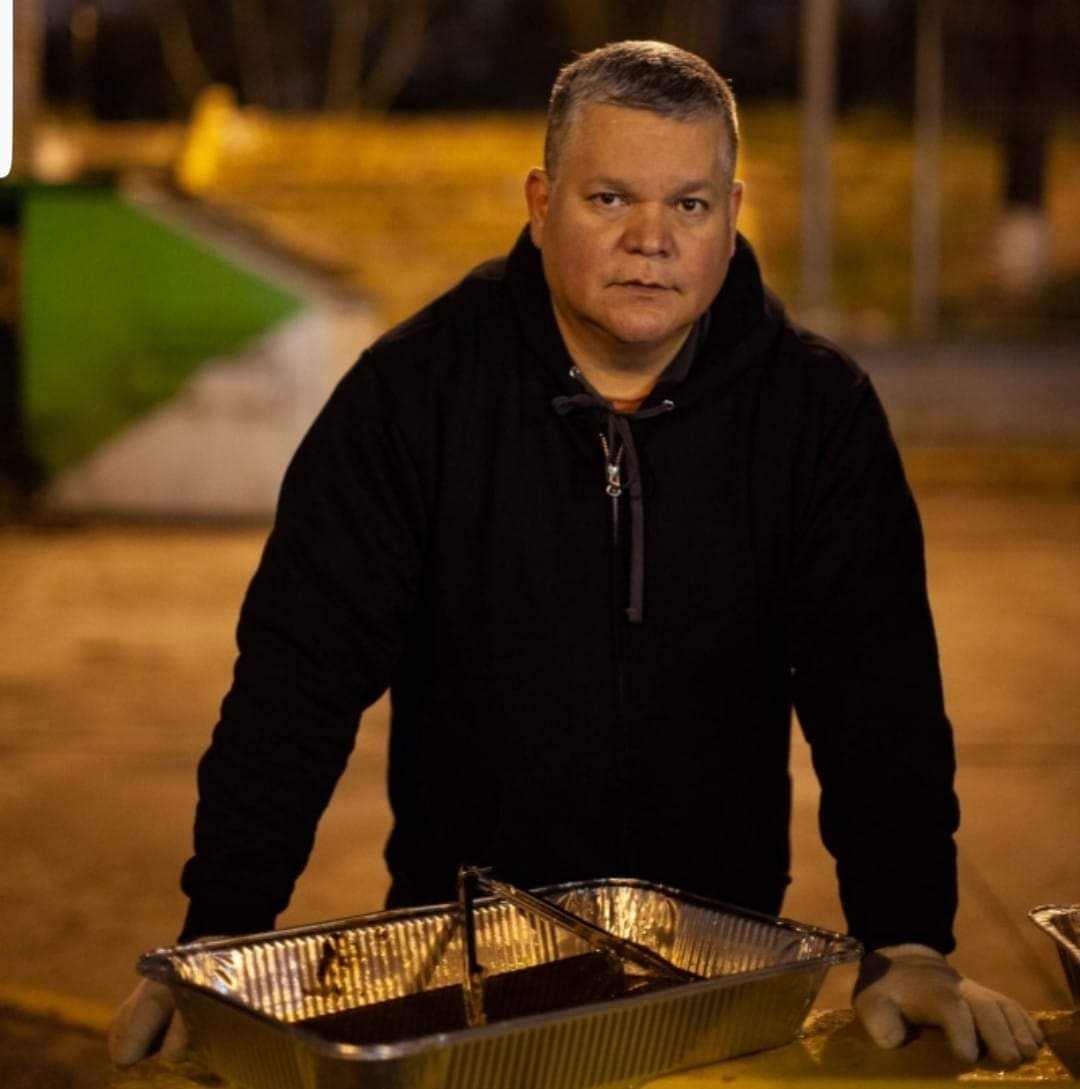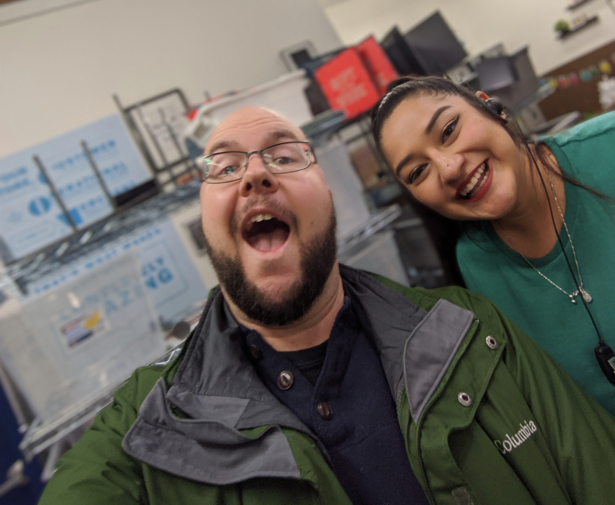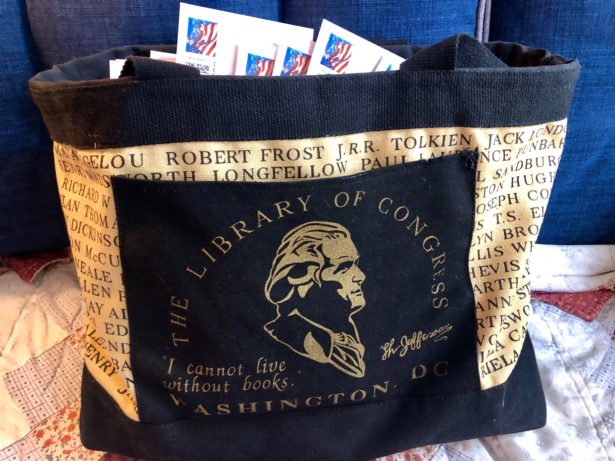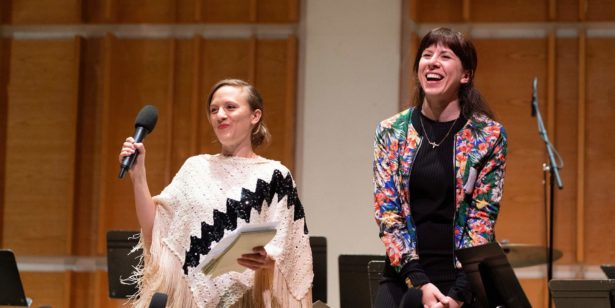
Building Bridges At The Border
One man’s singular devotion bolsters a movement
Last June, Mike Benavides got a call from a friend who needed some volunteers to help out at a bus station at McAllen, Texas, on the U.S. border with Mexico. “I was so unaware of what was going on,” Benavides said, “but I headed over.”
When he got there, he was confronted with a crowd of immigrants to the United States who were attempting to travel from the bus station to meet family, friends, or other people who were assisting with their entry to the country. Most of the people had few or no possessions. “I helped with a group, we were handing out toothbrushes, backpacks. It was a well oiled machine,” Benavides said.
Benavides left McAllen at 10pm for the 90-minute drive to his home in Brownsville. “I thought, maybe this is happening at our bus station. It was about 11:15 or 11:30 when I got to Brownsville, so I drove over to the bus station, and I noticed there were about 20 people camped out on the sidewalk,” Benavides told Good Turns recently. “I didn’t know this, but our bus station closes at 11pm and reopens at 4:00 in the morning.”
“I talked to people, you could tell they weren’t the local homeless. They were all dressed in the same outfit, like blue hospital scrubs, with little blue slippers, and they all had a mesh bag. They explained that they were asylum-seekers who had been released from detention. They’d gotten dropped off at 9:30, and a few people had gotten on the 10:30 bus, but everybody else had to wait til tomorrow,” Benavides said.
“I can’t imagine myself not doing it, just going home and watching it all play out on TV”
The encounter inspired Benavides to take action that night—and eventually to do much more. “I drove to McDonald’s and got 20 Happy Meals for them,” he said. “They were all hungry, they hadn’t eaten all day. They were telling me they wished someone had helped them when they were waiting in Mexico, and I said, ‘What do you mean, waiting in Mexico?’ They told me it took them like a month to get across.” The asylum-seekers said they had been sleeping on the bridge that spanned the border between Brownsville, Texas, and the city of Matamoros, in Mexico. Benavides wanted to see for himself, so the next morning he crossed into Mexico.
“Sure enough, there were 20 or 30 people living on the bridge,” he said. “They didn’t have access to food, they were living in the sun. So I just started buying tarps for them, and sunglasses for the kids, sunscreen. I was crossing over Hot-N-Ready pizzas.”
“After a couple of weeks of Hot-N-Readys and Church’s Fried Chicken and McDonald’s dollar menu, we realized how expensive this was,” Benavides said. “So I rented a little apartment there near the bus station, and there was a gentleman camped out in protest, living in a tent, spinning his wheels there, he was a cook, and he started cooking chicken and rice every night and it ended up being cheaper.” The effort only grew from there. “We got more and more volunteers, I started posting things on Facebook, and people were saying, ‘Hey, can I cook one night?’ After three or four months, I had people fighting over who was going to cook.”
In December, the “dinner project,” as Benavides calls it, was adopted by a nonprofit charitable organization and homeless shelter known as the Good Neighbor Settlement House. But at that point, he realized that for many of the people camped out on the bridge, dinner was their only meal of the day. “So I started a little breakfast mission. It consisted of water, coffee, juice, and I’d pick up McDonalds or Burger King. All of it was an out-of-pocket expense for me,” said Benavides, an administrator for a Brownsville school district. “At the time there were about 30 to 40 people and I could pull that off. Right now we have about 80 and it’s getting a little expensive. Now we’re getting better organized, we’ve got a family from a couple towns up, they cross breakfasts on Monday and Friday.” The breakfast routine starts for Benavides at 5:30 in the morning. “I pick up all the things I need, juice, water, cups, napkins. The night before, I order the breakfasts, so I pick that up, cross that in, and I’m done by about 7:30 and by 8:00 I’m in my office.” Most days, Benavides gets out of work at 5:00pm and heads back to the bus station again.
This kind of devotion seems remarkable, but Benavides, who is 49, has long been involved with service, in one form or another. “I did missionary work for two years, and I was eight years in the army, so public service has always been something I’ve been attracted to,” he said.
“I’m kind of driven by this need to help. It feels like it’s important. I really try hard to spread the word, these are such good people, they’re very worthy people. They get a lot of bad reputation, but they’re actually the people that are fleeing the bad hombres. And I truly feel with all my heart that if the shoe were on the other foot, they would do the exact same thing for me. I can’t imagine myself not doing it, just going home and watching it all play out on TV.”
The partnership with the Good Neighbor Settlement House, as well as volunteer doctors and immigration lawyers and other concerned citizens, has let the community of volunteers offer more than just food, Benavides says. “It’s evolved into a full service that makes sure that everybody gets what they need to make sure they’re healthy and well fed. I see them arrive from Day 1, and nobody, not one person I’ve spoken to, expected to be stranded in Mexico for a month and a half or two months. They arrive, they’ve been walking, they’re exhausted, and after a month and a half, they all gain weight, they feel supported, like they’re part of a community. There’s no way I could stop doing this. It’s the most amazing thing in the world.”
Posted April 29, 2019





